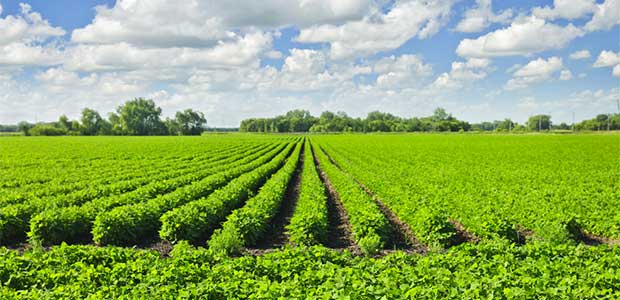
Who's Behind the Farmers Growing Your Food?
To better understand the little-discussed world of agribusiness, we'll need to examine how agribusiness drives American agriculture and affects farming on a global level.
- By Emily Folk
- Aug 26, 2020
In today's world, there are multiple stakeholders involved in the business of growing food. The modern food system is complex, requiring an intricate network of producers, processors, distributors and consumers to get food from the field to your plate. Agribusiness refers to any business involved in agriculture. More specifically, it applies to companies that sell equipment, seed or fertilizer to farmers. These businesses play a significant role in how food is grown, and yet we never really hear about them.
To better understand the little-discussed world of agribusiness, we'll need to examine how agribusiness drives American agriculture and affects farming on a global level. Maybe then we can answer the question, "Who's growing your food?"
American Corporate Agriculture
Most agricultural land in the United States is devoted to crops that are not for human consumption. Cash crops like soy, corn and wheat go primarily to feedlots, where they are used as feed for livestock. However, the idyllic picture of a Midwestern farm surrounded by corn has a dark history. In the 1970s, the U.S. Secretary of Agriculture, Earl Butz, famously declared that family farms should get big or get out. This transition to large, monoculture growing relied heavily on petroleum-based chemicals and fertilizers.
Agribusinesses, like Monsanto and Cargill, lobbied to push the use of more inputs on farms, making farmers reliant on the products they sold. Without the American public even knowing, they transformed agriculture as we know it.
While we like to think of the farmers as being in charge, agribusinesses tend to run the show. However, this is not necessarily a bad thing. Farmers need equipment, and agribusinesses that provide machinery like trailers and tractors are vital to their farms' success. Partnerships between these businesses create thriving, interconnected agricultural communities that support each other. For farmers who manage small areas of land, these relationships are integral to running a successful business.
Agribusiness on a Global Scale
The impact of agribusiness on developing countries is substantial. For most of history, people have relied on small farms to grow food. Communities harvested crops produced by farmers in their areas and only a small portion of the harvest was set aside to be exported or traded elsewhere. Today, the global economy requires farmers to sell their products far away from where these goods are grown. This phenomenon can have a devastating impact on small, sustainable farms.
For example, in 2006, the Rockefeller Foundation and Bill and Melinda Gates Foundation announced the creation of Alliance for a Green Revolution in Africa (AGRA). The initiative aimed to increase crop productivity and agricultural incomes for farmers in 13 African countries.
Unfortunately, the type of agriculture incentivized is highly industrialized and has led to the import of petrochemical fertilizers, pesticides and commercial seeds. The initiative has not decreased food insecurity or poverty, but instead made small-scale farmers increasingly reliant on government subsidies.
Building a New System
Agribusiness is a key player in modern agriculture. Farmers rely on companies to buy seeds, equipment and other farm-related goods. But some of the world's largest companies, like Dow Chemical and Monsanto, have an unregulated amount of control over farmers. These companies have the money and power to lobby for agricultural systems that benefit their own businesses, making farmers increasingly reliant on chemicals and genetically modified seeds.
The corporate food system is experiencing waves of instability during the COVID-19 pandemic and in the process of transitioning to new supply methods as a response. Farm laborers and family farmers are pushing back against agribusinesses that have caused them to run into financial trouble and no longer want to rely so heavily on fossil fuel-based products. Just as importantly, consumers are also becoming increasingly aware of the holes in modern agriculture.
For people to build a new, climate-adaptive food system, agriculture will need to acknowledge the background forces that grow our food. With a little more decision-making power, farmers could transition agriculture toward a more sustainable system.
About the Author
Emily Folk covers topics in sustainability, conservation and green technology. You can read more of her work on her blog, Conservation Folks.